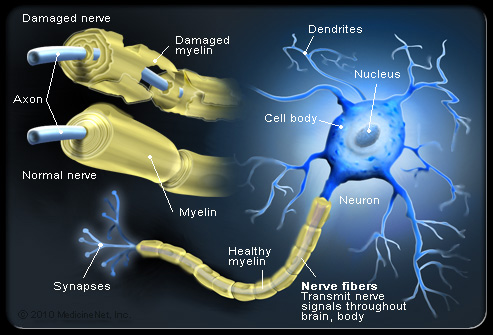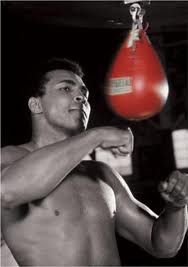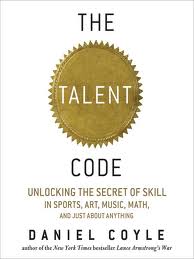How to Hack Your Ability to Learn Quickly
I recently started reading The Talent Code by Daniel Coyle, a book about unlocking the neurological insights for developing skills in sports, art, music, math, and just about anything. What interested me most about this book was the neurological perspective that Daniel Coyle wrote from. He truly dedicated this book to unlocking our ability to develop skills and talent all the way from the cellular level. His writing style is great and easy to follow.
In his book he talks about the significant role that myelin plays in learning and developing skills. Essentially, if you consider brain cells (neurons) the data and the connections (axons and dendrites) the reporting, synthesis, and insight from connecting the data then myelin is the auto-reporting feature that consistently extracts and executes on the insight from these established connections even as the data evolves and updates. So imagine an automatically generated report that runs periodically pulling updated data on a regular basis. You have essentially locked down this reporting insight and turned it into an actionable tool. Myelin is the wrapping that insulates the connections made between and among neurons in your brain. It exists in order to lock down skills and abilities you learn so that you can use them again on-demand and at increasingly difficult levels. Significant myelin forms when you achieve a deep level of practice on a regular basis. This is the kind of practice that the best athletes engage in on a regular basis, thus where we get the saying, practice makes perfect. However, Coyle makes a slight change to that by adding that perfect practice makes perfect.
 In his book, Coyle writes a great deal about perfect practice and cites a case where a girl learned to play a song on her clarinet in 6 minutes. Essentially, she captured a month’s worth of learning in 6 minutes. The student, Clarissa, was considered mediocre and not significantly talented prior to this event. What she did, successfully, was fall into a deep level of practice where she was aware of and worked through every mistake she made. She started by working through the entire piece with all of her mistakes and then broke it down into pieces. She hacked her learning ability in order to produce an outstanding result in a short amount of time.
In his book, Coyle writes a great deal about perfect practice and cites a case where a girl learned to play a song on her clarinet in 6 minutes. Essentially, she captured a month’s worth of learning in 6 minutes. The student, Clarissa, was considered mediocre and not significantly talented prior to this event. What she did, successfully, was fall into a deep level of practice where she was aware of and worked through every mistake she made. She started by working through the entire piece with all of her mistakes and then broke it down into pieces. She hacked her learning ability in order to produce an outstanding result in a short amount of time.
 I recently tested this with an experiment of my own. I have wanted to learn the speed bag at my boxing gym for a couple of months now. I attempted it a few times and couldn’t get any rhythm going at all. So the other day I stepped up to the bag and committed to deep practice no matter how bad I looked (ignoring self-consciousness is key to deep practice). Five minutes into it, the on-duty instructor came by and offered some help. He demonstrated the entire skill and then broke it down into the steps. I gave him 110% of my attention. Then he left me to practice. I made so many mistakes but this time I was aware of them and simply kept making adjustments to correct for them. I started to become aware of my timing, the location on the bag I would hit, my positioning (feet and hands), my rhythm, my pace, and my posture. At this point I am adjusting each of these as I correct each mistake. All of a sudden I can hit the bag several times in a row. First I go for 5 in a row. Then what I felt was an impossible 10. Took some effort to get to 10. All of a sudden I am at 20 hits in a row. Then I set a goal of 100. I could not stop until I hit 100 with each hand, straight through, no errors. Thirty minutes later, I did it. I had completely acquired the skill of hitting the speed bag. I essentially compressed a month’s worth of practice into 30 hyper-focused minutes of deep practice. I felt like a video game character leveling up! I went back two days later and tried again. I picked up right where I left off. Except this time I had a new goal. I wanted to incorporate a little footwork into it and move while I was hitting it. Fifteen minutes into the practice, skill acquired. Two days after that, I had a new goal. To hit the bag at least 10 times in a row with my eyes closed. Thirty minutes of deep, hyper-focused practice later, skill acquired, level-up achieved.
I recently tested this with an experiment of my own. I have wanted to learn the speed bag at my boxing gym for a couple of months now. I attempted it a few times and couldn’t get any rhythm going at all. So the other day I stepped up to the bag and committed to deep practice no matter how bad I looked (ignoring self-consciousness is key to deep practice). Five minutes into it, the on-duty instructor came by and offered some help. He demonstrated the entire skill and then broke it down into the steps. I gave him 110% of my attention. Then he left me to practice. I made so many mistakes but this time I was aware of them and simply kept making adjustments to correct for them. I started to become aware of my timing, the location on the bag I would hit, my positioning (feet and hands), my rhythm, my pace, and my posture. At this point I am adjusting each of these as I correct each mistake. All of a sudden I can hit the bag several times in a row. First I go for 5 in a row. Then what I felt was an impossible 10. Took some effort to get to 10. All of a sudden I am at 20 hits in a row. Then I set a goal of 100. I could not stop until I hit 100 with each hand, straight through, no errors. Thirty minutes later, I did it. I had completely acquired the skill of hitting the speed bag. I essentially compressed a month’s worth of practice into 30 hyper-focused minutes of deep practice. I felt like a video game character leveling up! I went back two days later and tried again. I picked up right where I left off. Except this time I had a new goal. I wanted to incorporate a little footwork into it and move while I was hitting it. Fifteen minutes into the practice, skill acquired. Two days after that, I had a new goal. To hit the bag at least 10 times in a row with my eyes closed. Thirty minutes of deep, hyper-focused practice later, skill acquired, level-up achieved.
This simple experiment helped me realized we can all do this for just about anything we choose. We simply need to spend time in deep practice and not care even one bit what others think. I have already begun a new experiment for taking penalty shots and direct kicks with a soccer ball. In my first two hyper-focused practice sessions I saw dramatic improvements in my consistency and accuracy with the ball.
Breakdown of the steps I took:
1. Decide that you truly want to learn something. This is important because deep and focused practice requires dedication and commitment.
2. Observe a demonstration of the entire skill in action by an experienced person. This is very easy thanks to YouTube. Focus on all of the movements, steps, etc.
3. Break up the skill into smaller chunks (i.e. steps). Ask someone or yourself, what are the steps this breaks down to. Watch the demo carefully for these steps.
4. Attempt the entire skills with mistakes and all. Just run through it so you get a feel for the entire skill you decided to acquire. You MUST not care what others around you think.
5. Begin practicing and pause with each mistake, reflect on what the mistake was, make corrections and start again. Focus 110% on this step. No distractions, just you and the desired skill at hand. Each time you will notice different steps that need tweaking so that they all come together for successful execution of the entire skill.
6. Repeat step 5 as many times as you need to complete a full demonstration of the skill.
7. Celebrate with a big HELL YEAH when you can successfully execute the entire skill.
8. Don’t stop there, keep increasing the challenge and practicing. Myelin can eventually break down and with it goes your skill. This is why the best athletes practice even the simple skills (i.e. free throws) every day.
I share this with everyone because this is something all of us can do with almost anything we choose. Don’t allow yourself to be overwhelmed by the learning process. While high levels of mastery do take time, you can acquire the necessary skills a lot faster than you think.
What skill are you going to experiment this method with first?


September 3, 2013 @ 6:29 pm
Reblogged this on Studee-Lounge.